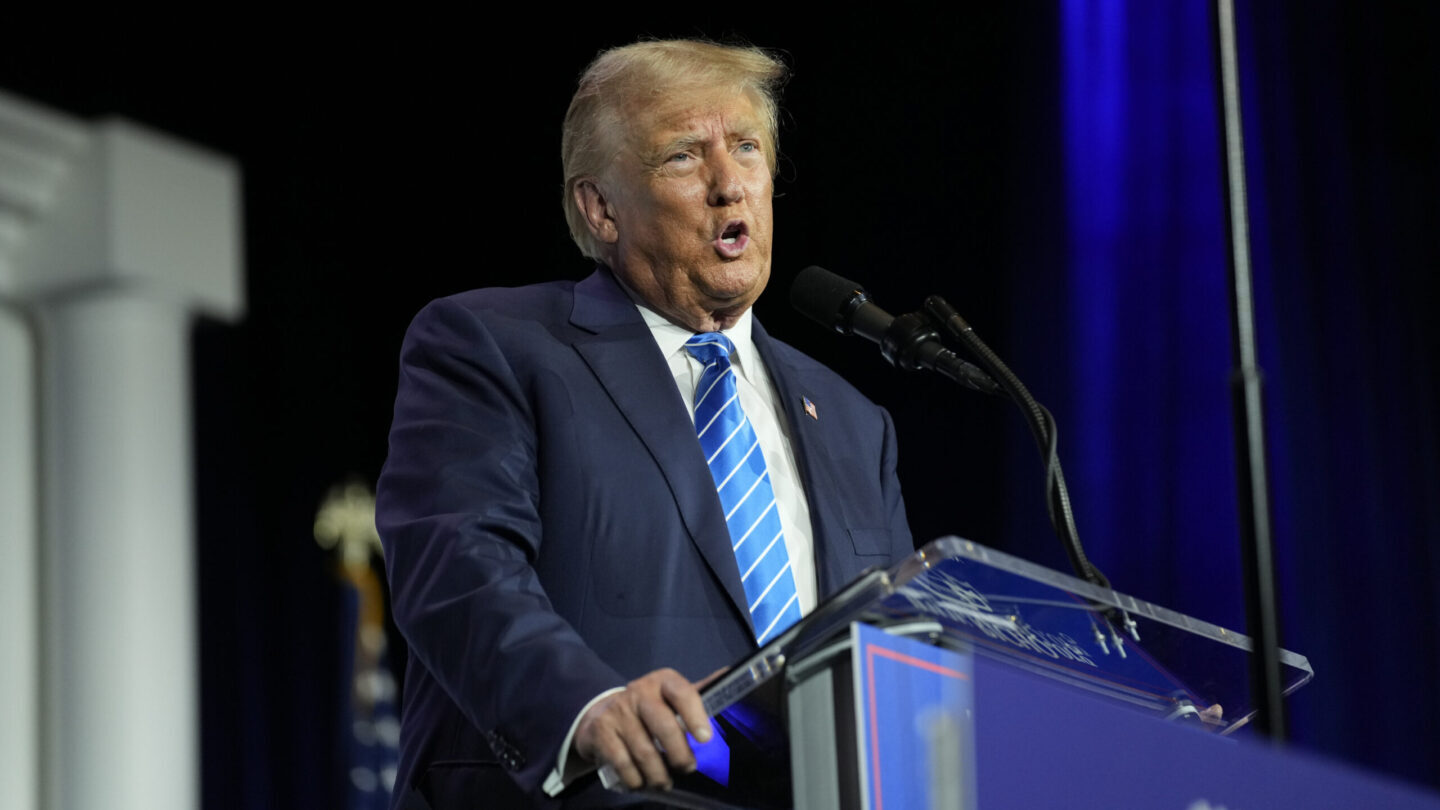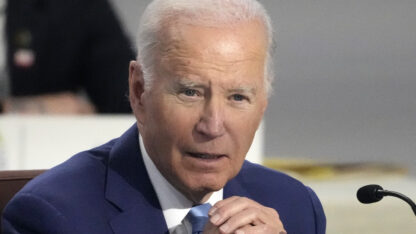Donald Trump will return to the U.S.-Mexico border for a visit Sunday as he promotes a hard-line immigration agenda that would be far more expansive than the policies he pursued during his first term as president.
Trump is scheduled to deliver remarks in Edinburg, Texas, after serving meals to National Guard soldiers, troopers and others who will be stationed at the border over Thanksgiving. He will be joined by Republican Gov. Greg Abbott, a longtime ally and fellow border hawk who is expected to endorse the front-runner for the 2024 nomination during the visit, according to a person close to Trump who spoke on condition of anonymity before a formal announcement.
Trump has been laying out immigration proposals that would mark a dramatic escalation of the approach he used in office and that drew alarms from civil rights activists and numerous court challenges.
“On my first day back in the White House, I will terminate every open-borders policy of the Biden administration. I will stop the invasion on our southern border and begin largest domestic deportation operation in American history,” he said in Iowa Saturday.
He also wants to:
— revive and expand his controversial travel ban, which initially targeted seven Muslim-majority countries. Trump’s initial executive order was fought all the way to the U.S. Supreme Court, which upheld what Trump complained was a “watered down” version that included travelers from North Korea and some Venezuelan officials.
— begin new “ideological screening” for all immigrants, aiming to bar “Christian-hating communists and Marxists” and “dangerous lunatics, haters, bigots and maniacs” from entering the United States. “Those who come to and join our country must love our country,” he has said.
— bar those who support Hamas. “If you empathize with radical Islamic terrorists and extremists, you’re disqualified,” Trump says. “If you want to abolish the state of Israel, you’re disqualified. If you support Hamas or any ideology that’s having to do with that or any of the other really sick thoughts that go through people’s minds — very dangerous thoughts — you’re disqualified.”
— deport immigrants living in the country who harbor “jihadist sympathies” and send immigration agents to “pro-jihadist demonstrations” to identify violators. He would target foreign nationals on college campuses and revoke the student visas of those who express anti-American or antisemitic views.
— invoke the Alien Enemies Act to to remove from the United States all known or suspected gang members and drug dealers. That law was used to justify internment camps in World War II. It allows the president to unilaterally detain and deport people who are not U.S. citizens.
— end the constitutional right to birthright citizenship by signing an executive order his first day in office that would codify a legally untested reinterpretation of the 14th Amendment. Under his order, only children with at least one U.S. citizen or lawful permanent resident parent would be eligible for a passport, Social Security number and other benefits.
— terminate all work permits and cut off funding for shelter and transportation for people who are in the country illegally.
— build more of the wall along the border, crack down on legal asylum-seekers and reimplement measures such as Title 42, which allowed Trump to turn away immigrants at the U.S.-Mexico border on the grounds of preventing the spread of COVID-19.
— press Congress to pass a law so anyone caught trafficking women or children would receive the death penalty.
— shift federal law enforcement agents, including FBI and Drug Enforcement Administration personnel, to immigration enforcement, and reposition at the southern border thousands of troops currently stationed overseas. “Before we defend the borders of foreign countries we must secure the border of our country,” he said said.
Trump has made frequent trips to the border as a candidate and president. During his 2016 campaign, he traveled to Laredo, Texas in July 2015 for a visit that highlighted how his views on immigration helped him win media attention and support from the GOP base.
The border has also become a centerpiece of Abbott’s agenda and the subject of an escalating fight with the Biden administration over immigration. The three-term governor has approved billions of dollars in new border wall construction, authorized razor wire on the banks of the Rio Grande and bused thousands of migrants to Democrat-led cities across the United States.
Abbott is expected to soon sign what would be one of Texas’ most aggressive measures to date: a law that allows police officers to arrest migrants suspected of entering the country illegally and empowers judges to effectively deport them. The measure is a dramatic challenge to the U.S. government’s authority over immigration. It already has already drawn rebuke from Mexico.
Still, the Texas GOP’s hard right has not always embraced Abbott. Trump posted on his social media platform earlier this year that the governor was “MISSING IN ACTION!” after Republicans voted to impeach Texas Attorney General Ken Paxton, a Trump ally. Abbott was also booed at a 2022 Trump rally.
But Abbott’s navigation within the GOP has built him broad support in Texas, where he has outperformed more strident Republicans down-ballot and helped the GOP make crucial inroads with Hispanic voters.
Democrats tried to use the trip to portray Trump’s plans as extreme.
“Donald Trump is going after immigrants, our rights our safety and our democracy. And that is what really is on the ballot last year,” Biden reelection campaign manager Julie Chavez Rodriguez said on a conference call with reporters.
Pollings show many voters aren’t satisfied with the Biden administration’s handling of the border.
A Marquette Law School poll of registered voters conducted in late September gave Trump a 24-point advantage over Biden on handling immigration and border security issues — 52% to 28%.









